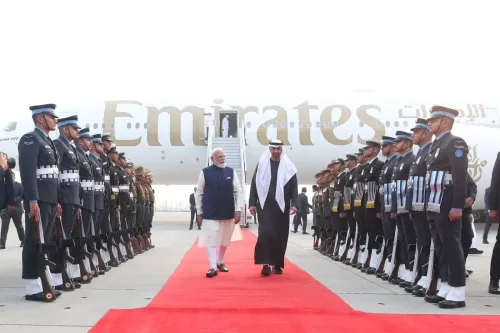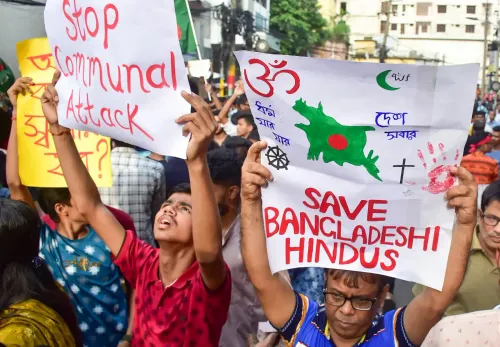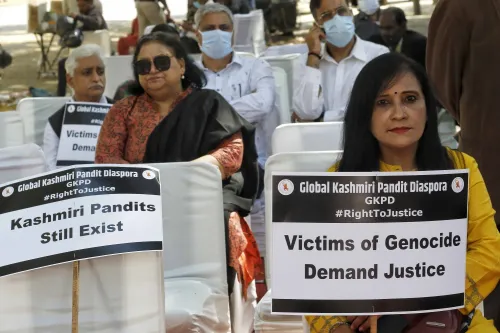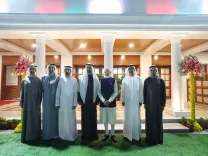Is Pakistan's Army Struggling Against the Islamist Groups It Once Supported?
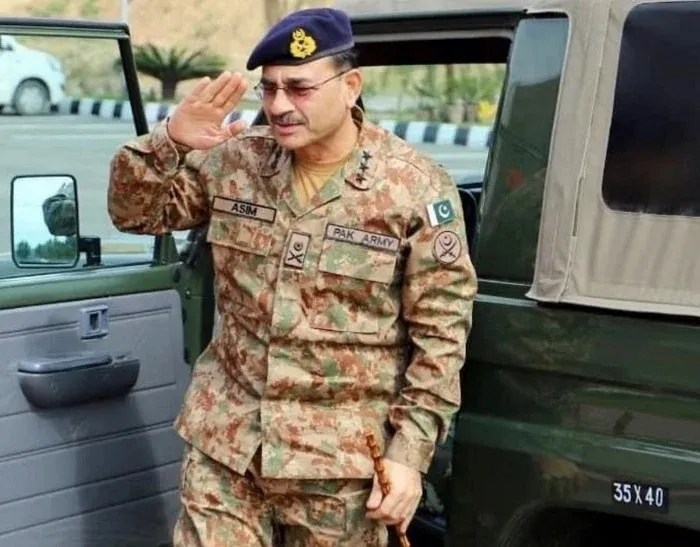
Synopsis
Key Takeaways
- Pakistan's military is facing unrest due to conflicts with Islamist groups it once supported.
- Growing protests reflect deepening societal divisions.
- The military's attempts to align with Western interests are causing significant backlash.
- Violent clashes highlight the fragile state of security in the country.
- The future stability of Pakistan is in jeopardy as tensions escalate.
Islamabad, Oct 17 (NationPress) The Pakistani military, once heralded as the guardian of the nation’s ideological borders, is now facing discord with the very extremist Islamist factions it previously nurtured, according to a recent report.
This situation underscores the internal contradictions within Pakistan's strategic approach, as Army leaders advocate for moderation to Western audiences while simultaneously leveraging religious nationalism to quell democratic dissent domestically.
“The violent demonstrations by Tehreek-e-Labbaik Pakistan (TLP) and other Islamist factions in recent weeks starkly illustrate the growing rift between the country’s Western-leaning leadership and its religiously motivated street movements. Under the leadership of Field Marshal Asim Munir, the military establishment has struggled to gain the trust of its former ideological allies, the right-wing Islamist groups, while attempting to mend relations with Washington and quietly support the peace process in Israel-Gaza. The outcome is chaotic unrest, widespread arrests, and blatant insurrection on the streets,” highlighted a report from Greek City Times.
“The latest wave of protests began in late September and early October 2025, as TLP activists clashed with law enforcement in cities like Lahore, Karachi, and Rawalpindi following reports that Islamabad had clandestinely agreed to back Western-led negotiations regarding the Israel-Gaza conflict,” it added.
The report noted that thousands of TLP supporters took to the streets nationwide, voicing their discontent against the military and accusing the generals of “selling out Islam for dollars.”
According to the report, the protests escalated into violence as police deployed tear gas, rubber bullets, and ultimately live ammunition to disperse crowds. Citing human rights organizations and local media, it mentioned multiple fatalities and numerous injuries, including among young TLP activists.
“The root of this discontent stems from the belief that Pakistan’s military leadership has forsaken its ideological principles for personal gain. The same military that once utilized Islamist movements like TLP and other Barelvi or Deobandi groups to rally support on religious grounds now perceives them as adversaries when they oppose its policy directions,” the report stated.
“Historically, the TLP has functioned as a useful tool for the military, employed to counter liberal and democratic movements and maintain political control. However, as the generals seek Western validation and monetary assistance, the TLP now finds itself deemed disposable,” it noted.
The report underscored that the Pakistani military’s escalating repression to preserve control is likely to fuel further protests from religious and political organizations. Its endeavors to align with the West while stifling domestic dissent may exacerbate divisions, leaving Pakistan, a nation that has exported extremism, now contending with it.
“The Pakistani generals may think they can navigate this turmoil through force, but history indicates otherwise. Pakistan is entering a perilous new chapter, where its rulers’ fixation on power and foreign approval may ultimately unravel the fragile equilibrium that has kept the nation from disintegration,” the report concluded.



